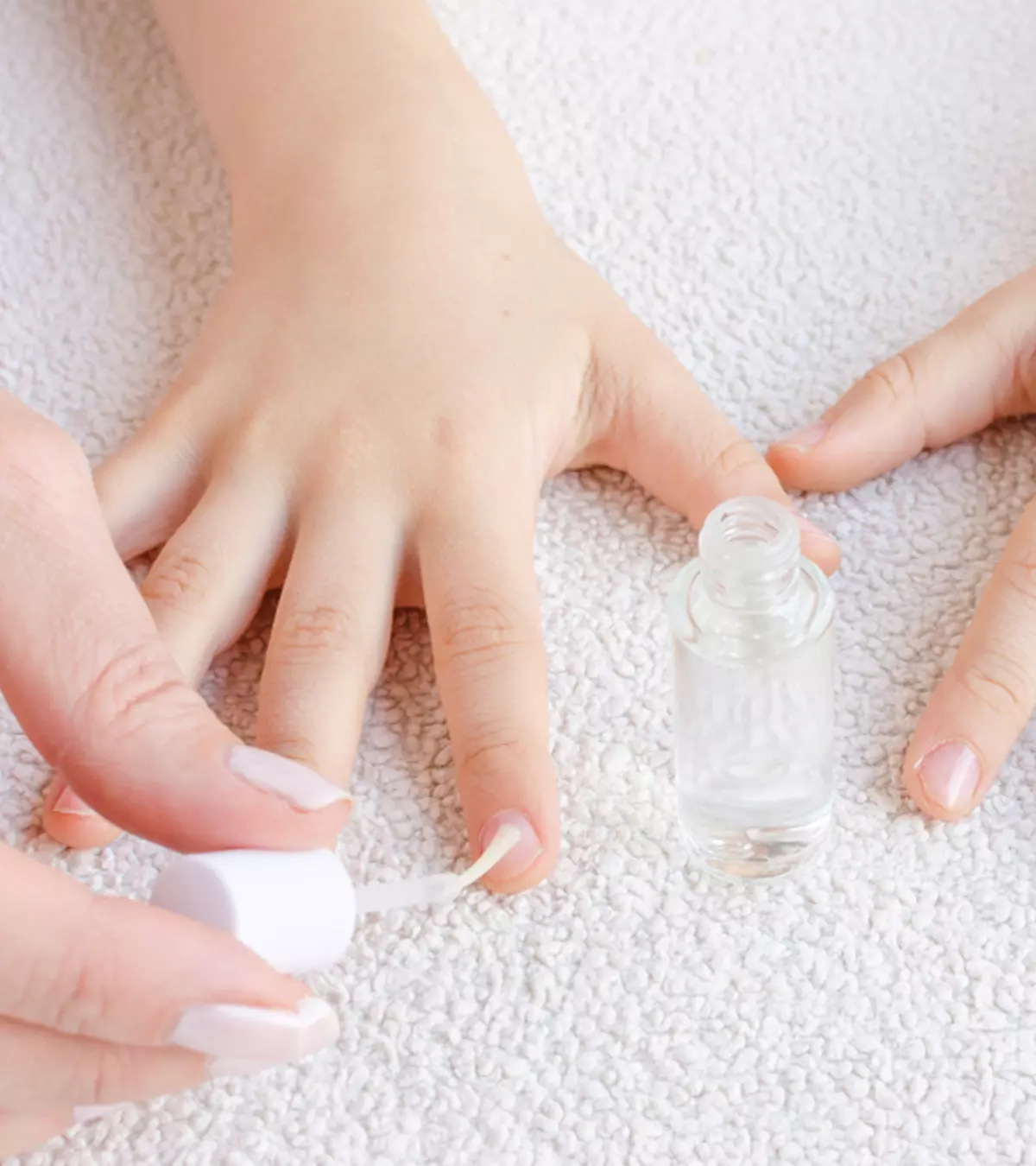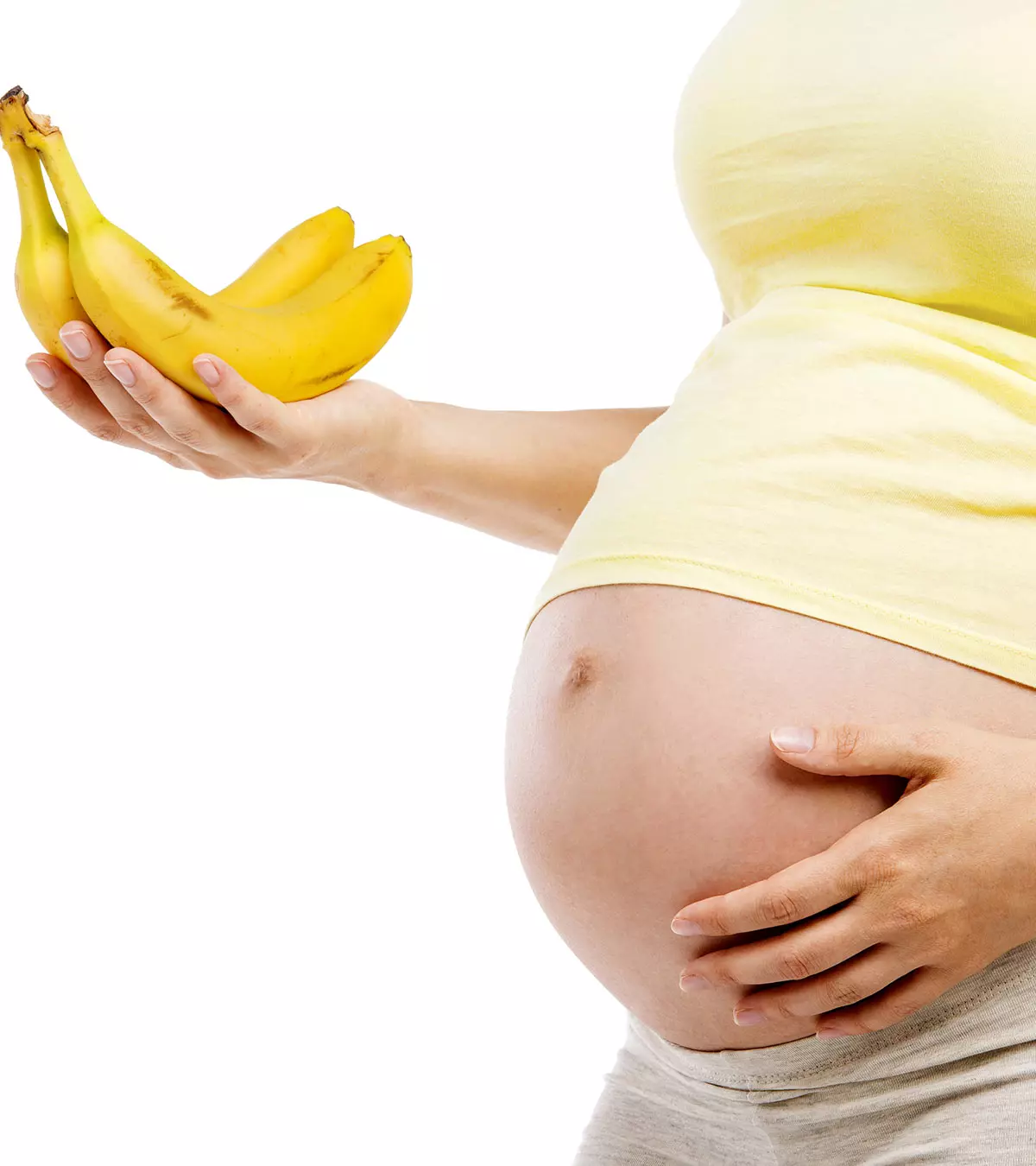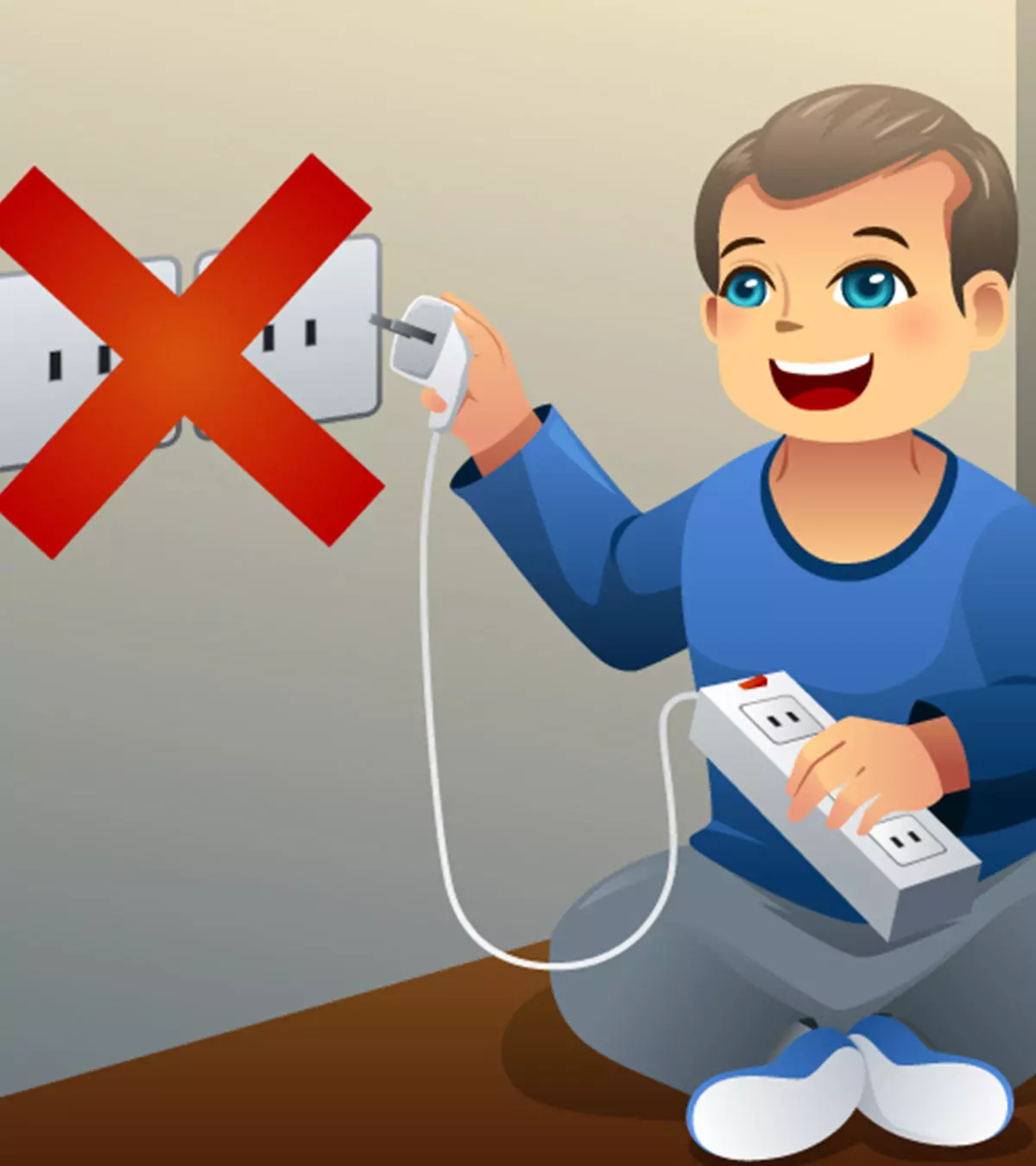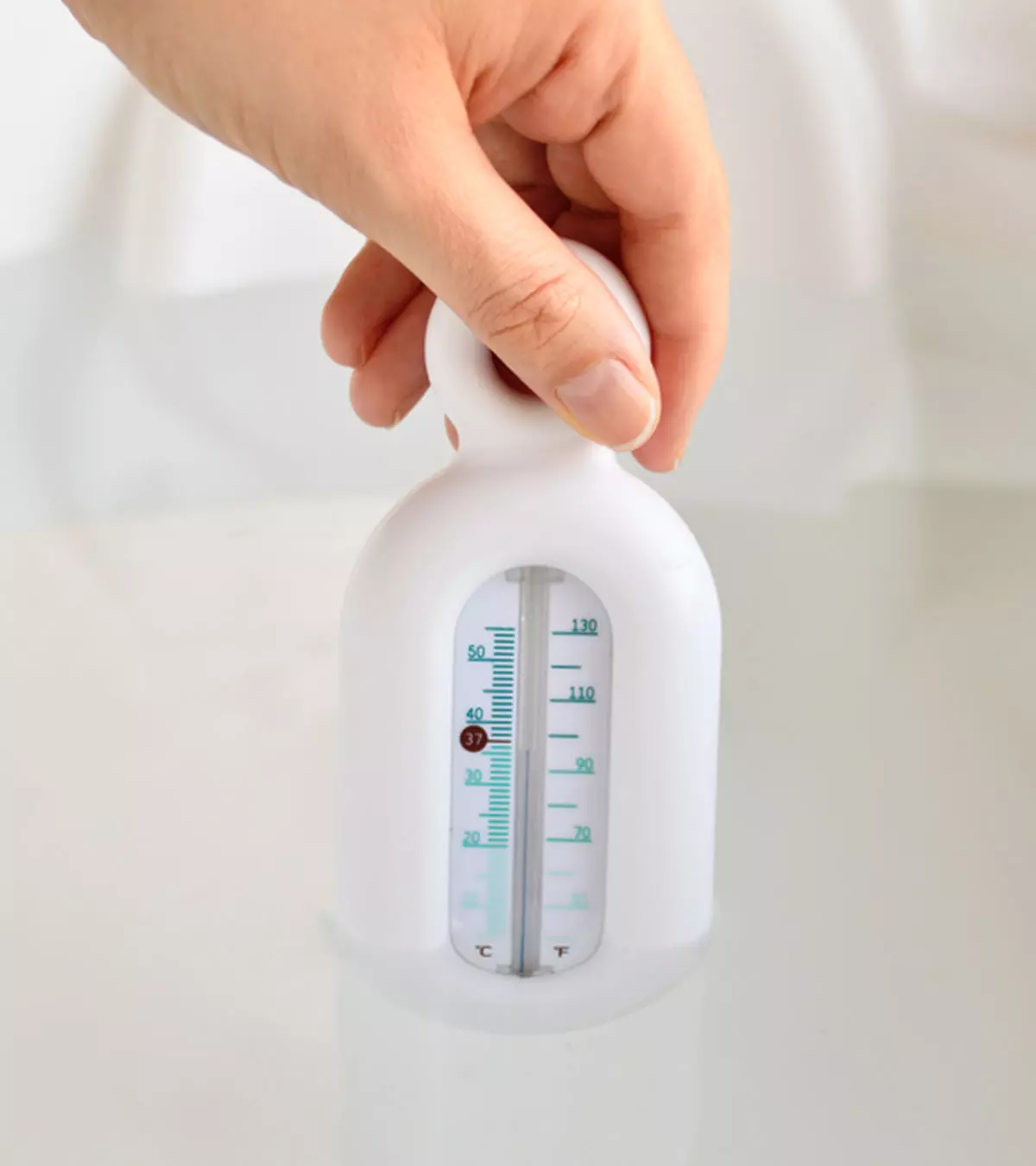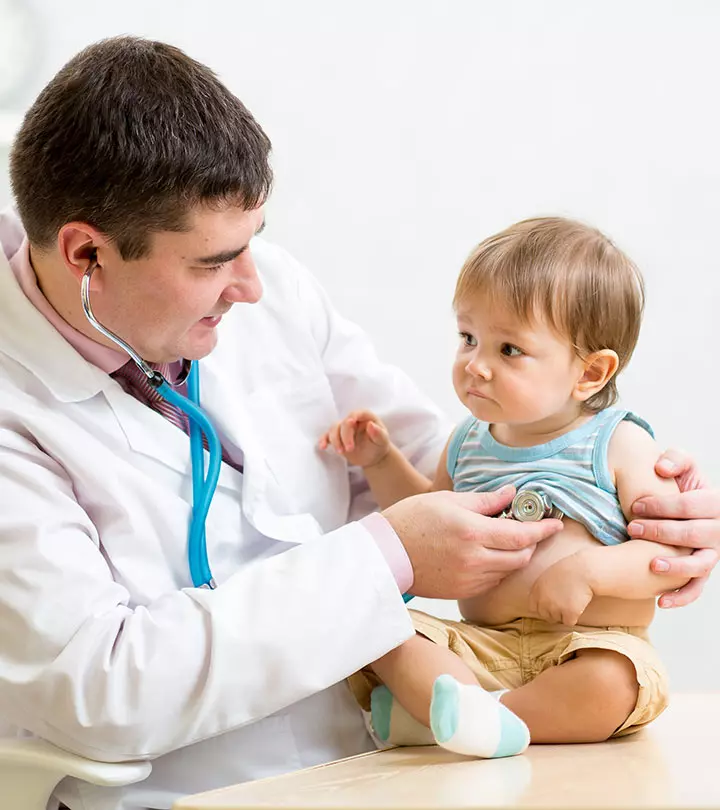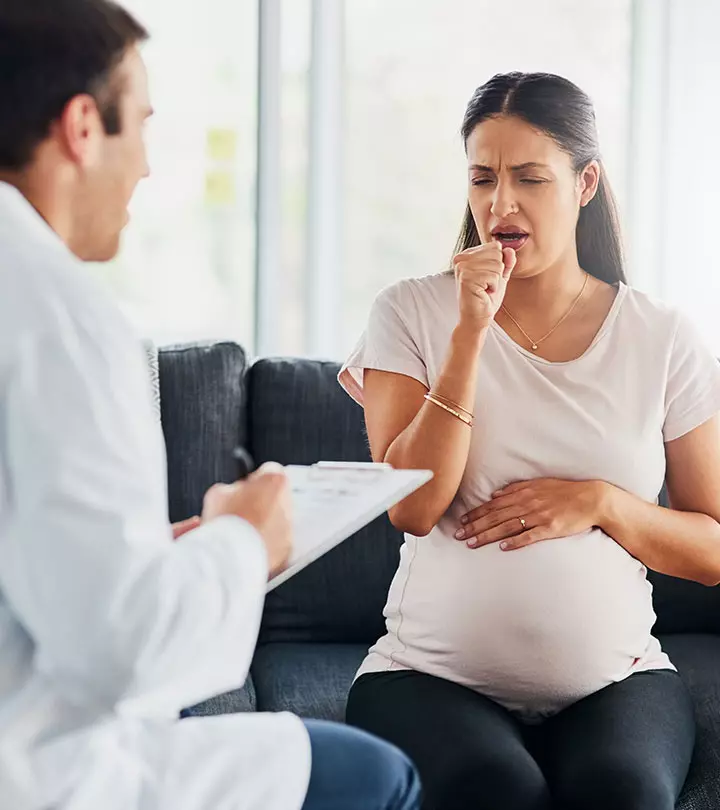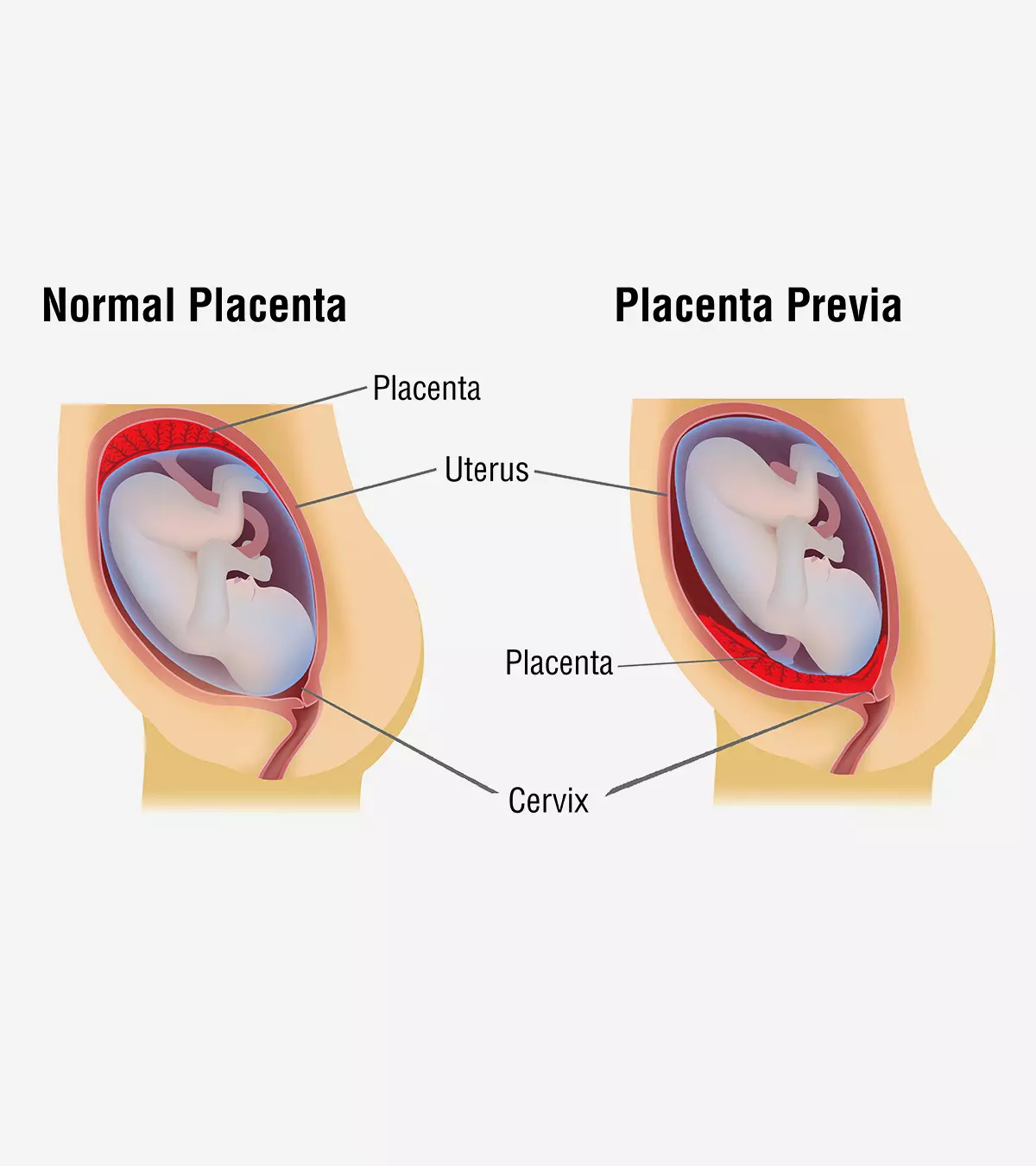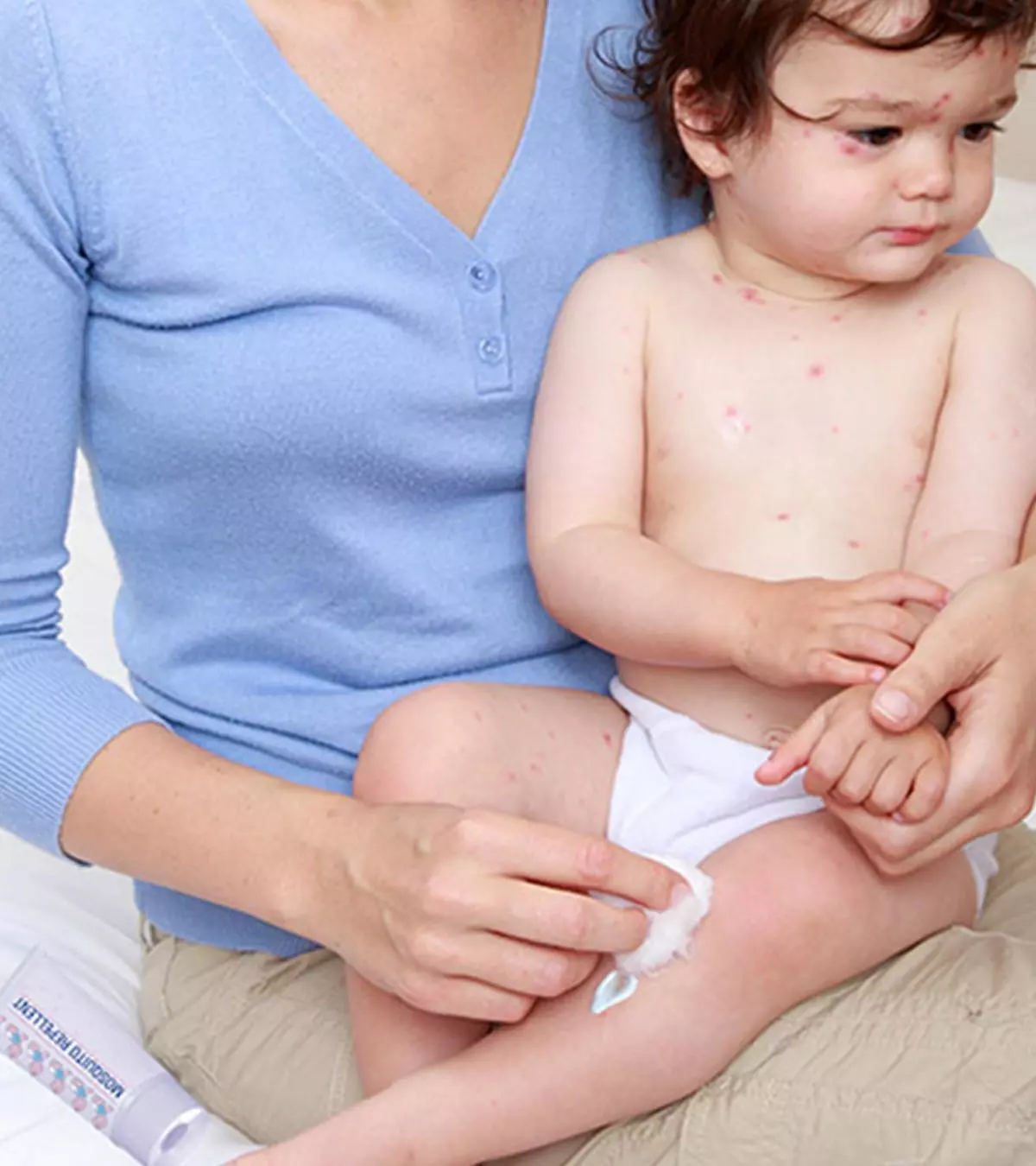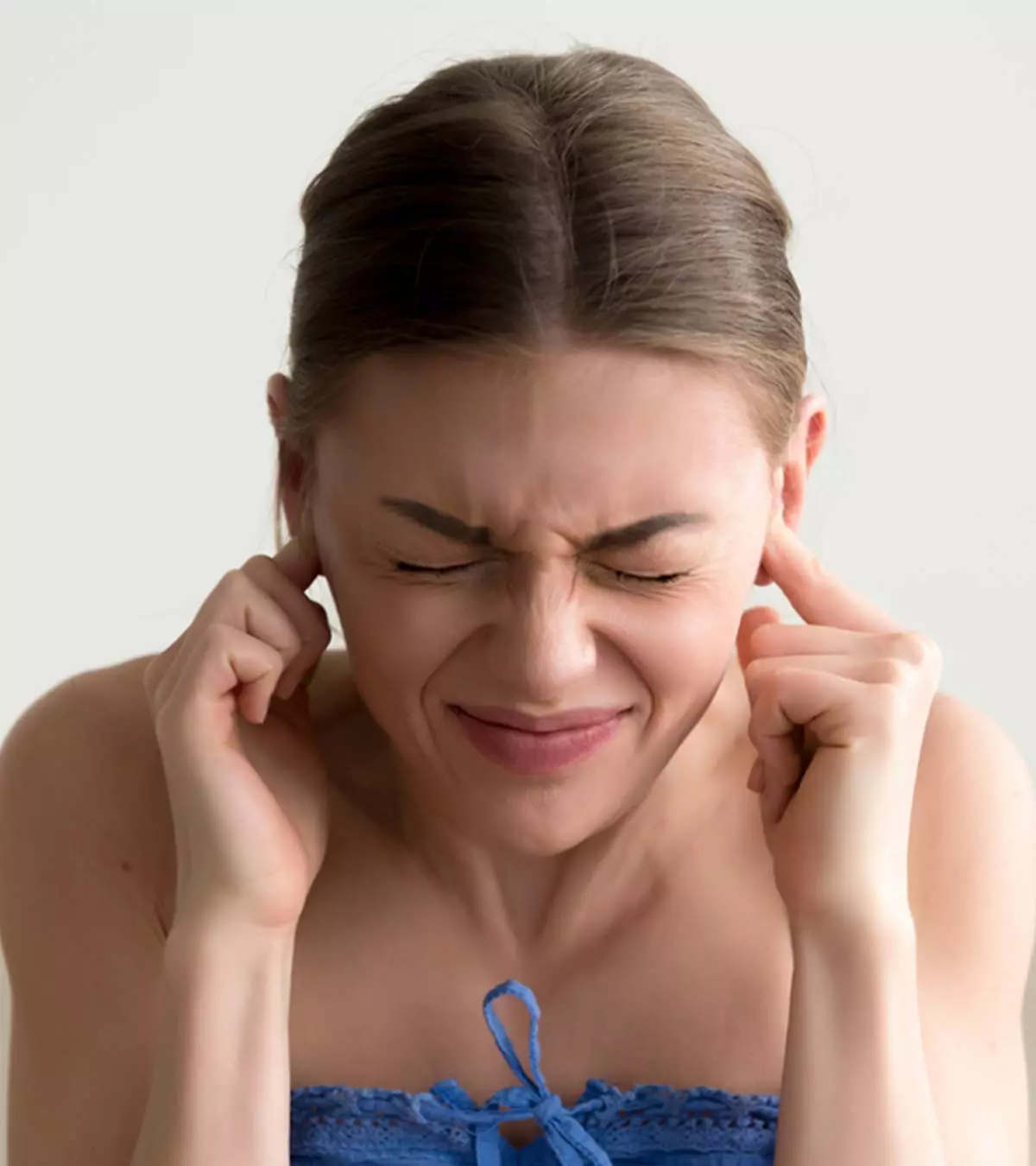
Image: Shutterstock
Continuous exposure to loud noises during pregnancy can pose health hazards to mothers and growing babies. This may cause maternal stress and hearing problems. Babies can hear even normal levels of sounds from the early second trimester. Fetuses who have exposure to high noise levels, such as noise from rock concerts or jackhammers, have an increased risk of hearing problems (1). However, you may take adequate precautions to avoid exposure to noises during pregnancy. Read on to know the safe levels of sound, the effects of loud noises during pregnancy on the mother and the baby, and how to avoid noise exposure.

Key Pointers
- Fetuses are susceptible to hearing issues when exposed to loud noises like rock concerts or jackhammers.
- Prolonged exposure to loud noise during pregnancy can cause premature delivery, high-frequency hearing loss, and fetal abnormalities.
- The mother’s abdomen and uterus are insufficient in blocking loud and prolonged sounds, which can potentially lead to hearing loss in fetuses.
- There is no safe sound pressure level for pregnant women, so it is recommended to limit exposure to loud noises.
What Kind Of Sounds Are Dangerous For Pregnant Women?
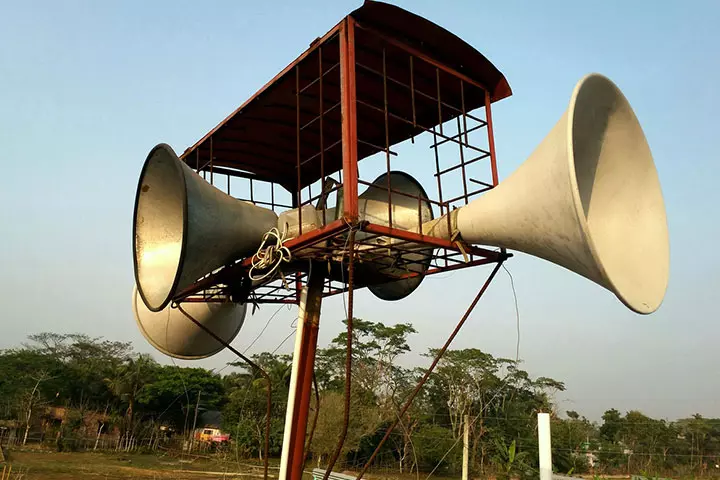
Unpleasant or unwanted sounds are referred to as noise. Noise is everywhere around us, including the noise that could emanate during household chores or at the workplace. However, not all noises are detrimental to pregnant women.
The following are examples of high levels of noise pollution (1).
- Sounds from traffic or aircraft (jet planes)
- Factory sounds
- Emergency sirens
- Loudspeakers
- Fireworks
- Gunshot and explosions
- Hairdryer
- Jackhammer
- Rock concert and loud music
- Tractors used in farm
- Sounds from loud machines, like a chainsaw
It is usually continuous noise exposure and exposure to loud noises that are dangerous. Remember, if a noise is unpleasant to you, then it is likely to be harmful to the developing baby.
How Do Loud Noises Impact Pregnant Women?
The health impact due to noise may vary depending on the frequency (how often), duration (how long), and intensity (how much) of the noise. Inside the womb, the fetus is exposed to constant background noise of around 85 dB, which can spike up to 95 dB with every heartbeat of the mother. Some sources suggest that noises above these limits might be harmful (2).
The following are the immediate side effects that might occur due to noise exposure.
- Sleep disturbances: Environmental noise could cause you to have sleep disturbances, which may contribute to psychological stress or behavioral outcomes such as mood changes and annoyance (3).

- Increased production of stress hormones: Pregnant women are at an increased risk of stress due to exposure to high noise levels. High levels of stress during pregnancy may increase the risk of low birth weight and premature birth (4).
In the long term, loud noises may also cause:
- Hearing impairment: High exposure to noise may cause damage to the auditory system. The noise-induced hearing loss or impairment can be accompanied by a distorted perception of sounds and tinnitus (ringing in the ear) (3).
- Increased risk of cardiovascular disease: Physiological stress reactions due to noise may include activation of the autonomic nervous system and endocrine systemiA system comprised of glands that secrete hormones in the body . Changes in these systems may lead to an increased risk of cardiovascular diseases due to alterations in factors such as blood pressure, lipid levelsi, cardiac output, etc (5).
- Increased risk of premature delivery: According to National Vital Statistics reports, the preterm birth rate increased by 4%, reaching 10.49% (6). Moreover, the risk of premature delivery increases more among women who are exposed to sounds of more than 80 decibels during eight hours of occupation (7).
- Low birth weight: Several studies have noted that pregnant women who reside close to airports are regularly exposed to aircraft noises louder than 60 decibels. The constant exposure, throughout day and night, might result in low birth weight in babies (7).
- Increased risk of pre-eclampsia: Preeclampsia is a severe pregnancy complication characterized by high blood pressure and other health issues, including organ damage. According to a study, exposure to loud noise at work during pregnancy might raise the risk of preeclampsia (8).
Although mothers can protect their hearing using earplugs, these sounds can reach the womb and affect babies’ hearing (1).
The Effects Of Loud Noise On The Baby During Pregnancy
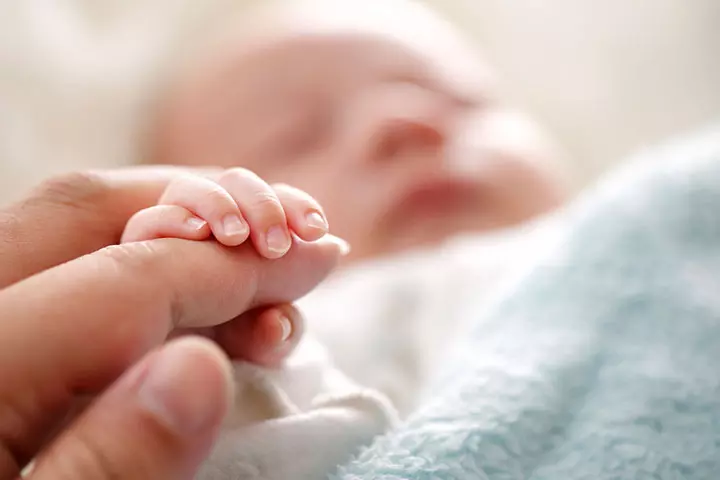
Some noises could cause fetal hearing problems within first time exposure, whereas a few may harm over continued exposure.
The continuous exposure to high noise levels during intrauterineiLocated inside the uterus life may result in fetal abnormalities and preterm birth. These adverse effects include (7):
- High-frequency hearing loss
- Growth retardation
- Damage of cochlea
- Premature birth
- Birth defects
Expected mothers’ exposure to impulse noises, such as gunshots and explosions, including those from fireworks, can be dangerous to the human fetus. The long-term effects on the baby can include damage to the inner ear, which can result in noise-induced sensorineural hearing loss over time. A study also found that “exposure to high (>85 dBA) levels of occupational noise throughout the pregnancy (full-time workers) was associated with an increased risk of the child being born small for gestational age compared to noise exposure <75 dBA. A similar increase was seen for low birth weight for high noise levels (9).”
 Did you know?
Did you know?Are Unborn Babies Protected Against Loud Sounds?
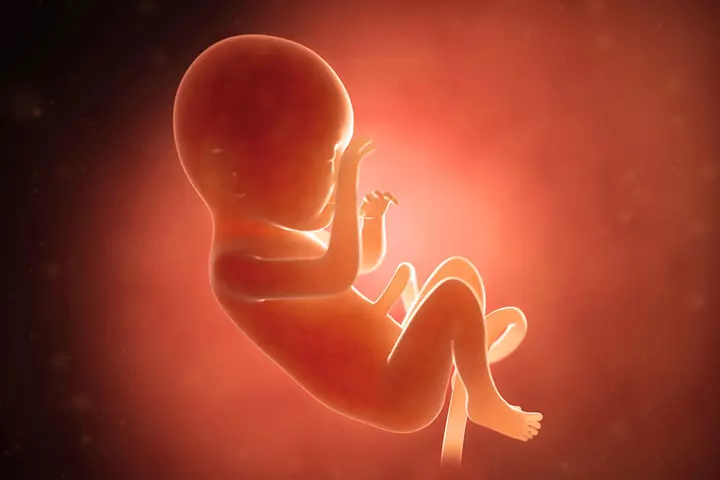
Evidence indicates that continuous prenatal exposure to high-level noise could lead to hearing damage in babies. This further indicates that developing fetuses do not necessarily have protection against loud noises, and therefore loud noises are most likely to affect fetal development (11). Fetuses start responding to low-frequency sounds earlier and higher-frequency sounds later in gestation weeks.
An anonymous mother and blogger recollects how her unborn baby girl reacted to a sudden loud noise nearby, “At around 18 weeks, I started to occasionally feel her movements, getting stronger and more pronounced as the weeks went on. I remember once using the food mixer and feeling her jump with surprise at the sudden loud noise. It was so magical to feel such a natural reaction to the noise from inside me that I burst out laughing (i).”
Maternal abdomen and uterus may filter high-frequency sounds and lower decibel sounds. However, this may not effectively block intense and sustained noises of high or low frequencies and higher decibel levels (12).
Some clinical studies have shown that there is high-frequency hearing loss in children with a history of exposure to noise more than 85 decibels during the gestation period (7). These instances indicate that the baby may not entirely be insulated from noises while inside the womb.
According to the Centers for Disease Control and Prevention, maternal environmental causes, maternal infections during pregnancy, and complications after birth are the underlying causes for hearing loss in about 25% of babies diagnosed with hearing loss (14).
Recommended Noise Levels During Pregnancy
There is no precise, appropriate, and safe sound pressure level (measured in decibel) for women during pregnancy. Sounds can travel through the body and reach the developing baby.
Some experts believe that pregnant women should avoid continuous noise exposure to sounds louder than 115 decibels (approximately the noise of a chain saw) (1). However, staying way below 115 decibels noise limit is preferable. A nationwide prospective cohort studyiResearch conducted on individuals with similar traits but minor differences conducted among Swedish women had shown that occupational noise of more than 85 decibels caused a reduction in fetal growth. It was observed in full-time working mothers (9).
According to the US CDC, noise that is 85 decibels or more can be hazardous to the hearing of adults. Therefore, as per the results noted in studies and CDC’s recommendation, it is best to limit your exposure to noises lower than 85 decibels to avoid causing adverse effects to you and your fetus (7).
How To Prevent Noise Exposure During Pregnancy?
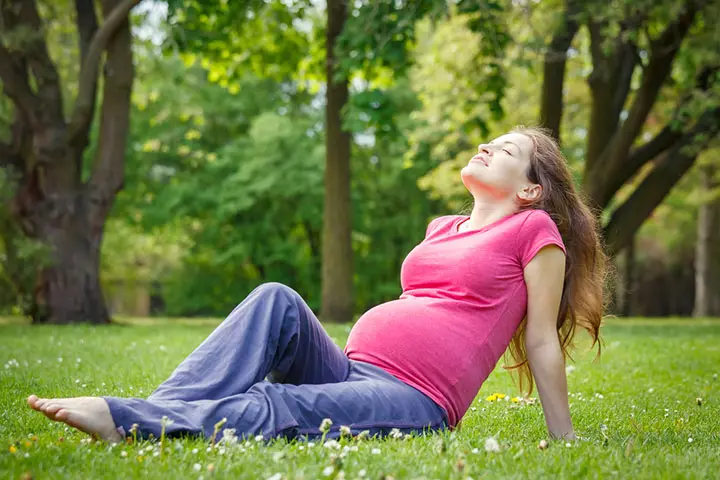
There is usually no way to tell if a sound is 85 decibels or more since the noise could come across as tolerable. Also, avoiding exposure to loud noises during pregnancy may not be easy for all women, especially those who reside in urban areas or have occupational exposure.
Nevertheless, you may take the following measures in your day-to-day life to reduce your exposure to noise.
- Keep noisy machines such as washing machines or dishwashers away from your living areas or bedrooms
- Try to spend more time in silent areas such as the library, or any other quiet spot
- Close the windows and doors in your home to minimize outside noise
- Reduce the continuous use of headphones or earphones with high volume
- Avoid exposure to rock concerts, loud music, noisy movies, and noisy machines
- Stay indoors when there is the use of fireworks in your vicinity
- If you have noise exposure at your workplace, then you may discuss it with your organization and try to avoid it as much as possible
- Take regular breaks when exposed to moderate or high noise levels
- Monitor noise levels with smartphone apps that can measure decibels
These measures help to reduce the negative impact of loud noise on maternal and neonatal health.
 Quick fact
Quick factDo note that wearing earplugs can limit your exposure to noise, but it may still cause noise to reach the fetus.
If you are residing in industrial areas or near airports, then you could consider soundproofing your home with wall coverings, carpets, and acoustic foam panels.
Frequently Asked Questions
1. When do babies start hearing in the womb?
The structures for hearing or auditory systems begin to develop by three to six weeks of gestation and are well established by 20 weeks of pregnancy. Fetus’ ability to hear has been noticed around 24 weeks of gestation during antenatal (prenatal) ultrasound examinations. Fetuses produce a blink-startle responseiInvoluntary act of eye blinking in response to loud sounds to vibroacoustic stimulationiA technique that uses sound vibrations to assess fetal position and movements in the womb (low-frequency sound and vibration) during the ultrasound (7). This startle reflexes can be a sign that the fetus hears the low-frequency sound of the ultrasound transducersiAn instrument that uses sound waves to examine the location of the fetus and generate images .
2. What does it sound like inside the womb?
The fetus may hear a lot of sounds during intrauterine life. The auditory stimulus inside the womb can be (7):
- Mother’s voice
- Placental blood flow
- Mother’s heartbeat
- Mother’s breathing sounds
- Vibroacoustic stimulations during an ultrasound
- Sounds from the mother’s bowels
The following sounds from the workplace, household sources, or the surrounding environment can also create some response from the fetus. The external sounds may include:
- Occupational noises
- Traffic noises
- Machinery
- Vacuum cleaners
- Mobile phone
- Washing machine
- Television
- Radio
- Loud conversations
3. Can shouting affect my baby in the womb?
Yes, shouting or yelling at a pregnant woman can cause maternal anxiety and stress, which can lead to hormonal changes and affect the blood flow to the uterus. It can potentially have negative effects on the overall well-being of the fetus. Additionally, if the mother is the one yelling or shouting, it can have similar effects on the fetus. Therefore, pregnant women need to maintain a healthy emotional and physical environment to promote the fetus’s well-being (10) (14).
4. How do I know if my baby is deaf in the womb?
Fetal movement in response to sound and sensory evoked potential tests can help determine the presence of fetal hearing during the third trimester of pregnancy (15).
5. Can a 9-month pregnant woman watch a movie in the theater?
Dr. Kubanych Takyrbashev, a doctor of internal medicine and anesthesiology from Minneapolis, Minnesota, says, “It is generally safe for a pregnant woman to watch a movie in a theater during the ninth month of pregnancy. However, it is important to prioritize the expectant mother’s comfort and well-being. Movie theaters can vary in sound levels, with some featuring surround sound systems that produce intense auditory experiences. I recommend pregnant women choose seats away from the speakers and take breaks if they feel overwhelmed by the noise.”
These intrauterine sounds may not be harmful to babies. However, they should be protected from loud noises from external sources.
Pregnancy is a sensitive period for both the would-be mother and the developing fetus. Hence, exposure to loud noises during pregnancy usually increases the risk of hearing impairment and induces the production of stress hormones, which may adversely affect the baby’s development. Therefore, it is advised to avoid being in or near areas with loud noise frequencies and avoid excessive use of headphones or earphones at high volumes. Instead, spend time in quiet spots and try to create a peaceful environment by keeping noisy machines away from the bedroom. It is important to have a quiet environment around such as to not cause fetal distress due to loud noise that may also negatively impact maternal health.
Infographic: Tips For Avoiding Loud Noises During Pregnancy
Although you may not know how much sound is too much to be exposed to when pregnant, staying away from high-frequency noises is ideal for keeping yourself and your baby safe. Browse through the infographic below to learn how to prevent excessive noise exposure during pregnancy.
Some thing wrong with infographic shortcode. please verify shortcode syntax
Illustration: How Do Loud Noises During Pregnancy Affect Your Baby?

Image: Dall·E/MomJunction Design Team
Are you wondering how loud noises affect your growing baby? Find out the answer to this question in the following video!
Personal Experience: Source
MomJunction articles include first-hand experiences to provide you with better insights through real-life narratives. Here are the sources of personal accounts referenced in this article.
i. My first pregnancy;https://tryingtobeamummy.com/Effy-Mae/
References
- About Noise and Reproductive Health.
https://www.cdc.gov/niosh/reproductive-health/prevention/noise.html?CDC_AAref_Val=https://www.cdc.gov/niosh/topics/repro/noise.html - Richard C.Niemtzow; (1993); Loud Noise and Pregnancy.
https://journals.lww.com/obgynsurvey/abstract/1993/09000/loud_noise_and_pregnancy.5.aspx - Noise-Induced Hearing Loss.
https://www.nidcd.nih.gov/health/noise-induced-hearing-loss - Mary E Coussons-Read; (2013); Effects of prenatal stress on pregnancy and human development: mechanisms and pathways.
https://pmc.ncbi.nlm.nih.gov/articles/PMC5052760/ - Stephen A Stansfeld and Mark P Matheson; (2003); Noise pollution: non-auditory effects on health.
https://citizensassembly.ie/wp-content/uploads/C1-JDMM4IJJQY04-NoisePollutionnon-auditoryeffectsonhealth.pdf - Births: Final Data for 2025-National Vital Statistics Reports.
https://www.cdc.gov/nchs/data/nvsr/nvsr72/nvsr72-01.pdf - Neha Thakur et al;(2016); Noise as a Health Hazard for Children: Time to Make a Noise about it.
https://www.indianpediatrics.net/feb2016/feb-111-114.htm - Zihao Wang et al; (2025); Association between noise exposure during pregnancy and pregnancy complications: A meta-analysis.
https://www.frontiersin.org/journals/psychology/articles/10.3389/fpsyg.2025.1026996/full - Jenny Selander et al; (2019); Full-time exposure to occupational noise during pregnancy was associated with reduced birth weight in a nationwide cohort study of Swedish women.
https://www.sciencedirect.com/science/article/pii/S004896971833657X?via%3Dihub - Kaori Komori et al; (2019); Verbal abuse during pregnancy increases frequency of newborn hearing screening referral: The Japan Environment and Children’s Study.
https://pubmed.ncbi.nlm.nih.gov/30807899/ - Noise during pregnancy increases risk of hearing dysfunction in children.
https://news.ki.se/noise-during-pregnancy-increases-risk-of-hearing-dysfunction-in-children - Charlene Krueger et al; (2012); Safe Sound Exposure In The Fetus And Preterm Infant.
https://pmc.ncbi.nlm.nih.gov/articles/PMC3665292/ - About Hearing Loss in Children.
https://www.cdc.gov/hearing-loss-children/about/index.html - Michelle Dreiling et al; (2016); Stress-induced decrease of uterine blood flow in sheep is mediated by alpha 1-adrenergic receptors.
https://pubmed.ncbi.nlm.nih.gov/27352901/ - G Isaacson; (1988); Antenatal diagnosis of congenital deafness.
https://pubmed.ncbi.nlm.nih.gov/3281540/
Community Experiences
Join the conversation and become a part of our nurturing community! Share your stories, experiences, and insights to connect with fellow parents.
Read full bio of Dr. Arpita Chakraborty
- Dr. Kubanych Takyrbashev holds a medical degree and a masters’ in anesthesiology, critical care, public health, ob/gyn, and integrative medicine from the US, UK, and Russia.
 Dr. Kubanych Takyrbashev holds a medical degree and a masters’ in anesthesiology, critical care, public health, ob/gyn, and integrative medicine from the US, UK, and Russia.
Dr. Kubanych Takyrbashev holds a medical degree and a masters’ in anesthesiology, critical care, public health, ob/gyn, and integrative medicine from the US, UK, and Russia.
Read full bio of Dr Bisny T. Joseph
Read full bio of Rebecca Malachi
Read full bio of Dr. Joyani Das






